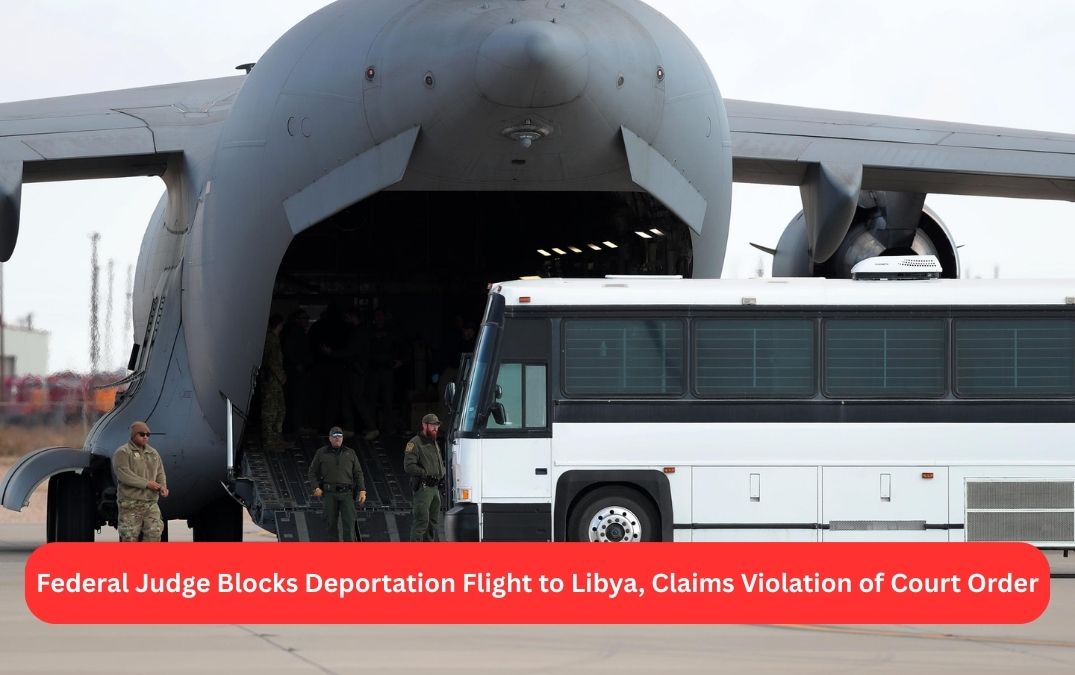A U.S. federal judge has ruled that sending migrants to Libya or Saudi Arabia could violate a prior court order unless they are given written notice and a chance to contest the deportation. The judge’s decision comes after immigrant advocacy groups filed an emergency motion to halt the planned deportations.
The motion was filed following reports that the Trump administration is preparing to deport a group of undocumented immigrants to Libya via a U.S. military plane. The U.S. government has not confirmed the details, including the departure date or whether more deportations to Libya will follow.
A flight plan filed by a U.S. Air Force C-17 shows a route from San Antonio’s Kelly Field to Misrata Airport in Libya. C-17 planes have recently been used to transport migrants. However, uncertainty surrounds the timing and scope of the deportations.
In response, Judge Brian Murphy issued a temporary block last month on the deportation of migrants to countries other than their own without proper notice. He emphasized that deporting individuals to Libya or Saudi Arabia would violate his earlier ruling.
The judge referenced a new amendment to a preliminary injunction, which clarifies that the Department of Homeland Security (DHS) cannot bypass its responsibility by involving other agencies, like the Department of Defense. He stated that the deportations, as reported, would clearly violate his order.
Immigrant groups are seeking an immediate restraining order against deportation flights to Libya or any other country other than the migrants’ country of origin. They also requested the return of any migrants already deported if necessary.
The deportation plan has faced widespread backlash. The White House declined to comment on the situation. However, a spokesperson for the Libyan Ministry of Foreign Affairs denied any agreement with the U.S. on deporting migrants to Libya.
Libya has been criticized by the United Nations for its mistreatment of migrants. The U.S. State Department has a Level 4 travel advisory for Libya, warning against travel due to terrorism, civil unrest, and other dangers.
While deportations to Libya have sparked controversy, talks about sending migrants to other African countries, such as Rwanda, continue. However, no confirmed deportation flights to these countries have been scheduled.












